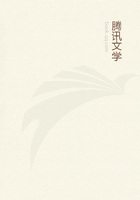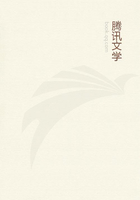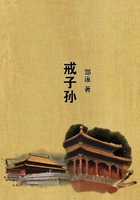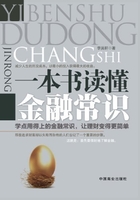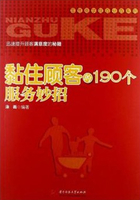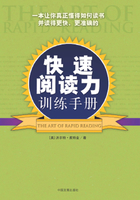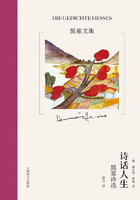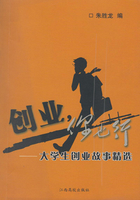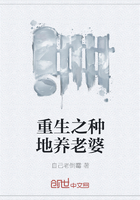The progress of elegant literature and of the fine arts was proportioned to that of the public prosperity. Under the despotic successors of Augustus, all the fields of intellect had been turned into arid wastes, still marked out by formal boundaries, still retaining the traces of old cultivation, but yielding neither flowers nor fruit. The deluge of barbarism came.
It swept away all the landmarks. It obliterated all the signs of former tillage. But it fertilised while it devastated. When it receded, the wilderness was as the garden of God, rejoicing on every side, laughing, clapping its hands, pouring forth, in spontaneous abundance, everything brilliant, or fragrant, or nourishing. A new language, characterised by simple sweetness and simple energy, had attained perfection. No tongue ever furnished more gorgeous and vivid tints to poetry; nor was it long before a poet appeared who knew how to employ them. Early in the fourteenth century came forth the Divine Comedy, beyond comparison the greatest work of imagination which had appeared since the poems of Homer. The following generation produced indeed no second Dante: but it was eminently distinguished by general intellectual activity. The study of the Latin writers had never been wholly neglected in Italy. But Petrarch introduced a more profound, liberal, and elegant scholarship, and communicated to his countrymen that enthusiasm for the literature, the history, and the antiquities of Rome, which divided his own heart with a frigid mistress and a more frigid Muse. Boccaccio turned their attention to the more sublime and graceful models of Greece.
From this time, the admiration of learning and genius became almost an idolatry among the people of Italy. Kings and republics, cardinals and doges, vied with each other in honouring and flattering Petrarch. Embassies from rival States solicited the honour of his instructions. His coronation agitated the Court of Naples and the people of Rome as much as the most important political transaction could have done. To collect books and antiques, to found professorships, to patronise men of learning, became almost universal fashions among the great. The spirit of literary research allied itself to that of commercial enterprise.
Every place to which the merchant princes of Florence extended their gigantic traffic, from the bazars of the Tigris to the monasteries of the Clyde, was ransacked for medals and manuscripts. Architecture, painting, and sculpture, were munificently encouraged. Indeed it would be difficult to name an Italian of eminence, during the period of which we speak, who, whatever may have been his general character, did not at least affect a love of letters and of the arts.
Knowledge and public prosperity continued to advance together.
Both attained their meridian in the age of Lorenzo the Magnificent. We cannot refrain from quoting the splendid passage, in which the Tuscan Thucydides describes the state of Italy at that period. "Ridotta tutta in somma pace e tranquillita, coltivata non meno ne' luoghi piu montuosi e piu sterili che nelle pianure e regioni piu fertili, ne sottoposta ad altro imperio che de' suoi medesimi, non solo era abbondantissima d' abitatori e di ricchezze; ma illustrata sommamente dalla magnificenza di molti principi, dallo splendore di molte nobilissime e bellissime citta, dalla sedia e maesta della religione, fioriva d' uomini prestantissimi nell' amministrazione delle cose pubbliche, e d'ingegni molto nobili in tutte le scienze, ed in qualunque arte preclara ed industriosa." When we peruse this just and splendid description, we can scarcely persuade ourselves that we are reading of times in which the annals of England and France present us only with a frightful spectacle of poverty, barbarity, and ignorance. From the oppressions of illiterate masters, and the sufferings of a degraded peasantry, it is delightful to turn to the opulent and enlightened States of Italy, to the vast and magnificent cities, the ports, the arsenals, the villas, the museums, the libraries, the marts filled with every article of comfort or luxury, the factories swarming with artisans, the Apennines covered with rich cultivation up to their very summits, the Po wafting the harvests of Lombardy to the granaries of Venice, and carrying back the silks of Bengal and the furs of Siberia to the palaces of Milan.
With peculiar pleasure, every cultivated mind must repose on the fair, the happy, the glorious Florence, the halls which rang with the mirth of Pulci, the cell where twinkled the midnight lamp of Politian, the statues on which the young eye of Michael Angelo glared with the frenzy of a kindred inspiration, the gardens in which Lorenzo meditated some sparkling song for the May-day dance of the Etrurian virgins. Alas for the beautiful city! Alas for the wit and the learning, the genius and the love!
"Le donne, e i cavalier, gli affanni, e gli agi, Che ne 'nvogliava amore e cortesia La dove i cuor son fatti si malvagi."
A time was at hand, when all the seven vials of the Apocalypse were to be poured forth and shaken out over those pleasant countries, a time of slaughter, famine, beggary, infamy, slavery, despair.
In the Italian States, as in many natural bodies, untimely decrepitude was the penalty of precocious maturity. Their early greatness, and their early decline, are principally to be attributed to the same cause, the preponderance which the towns acquired in the political system.
In a community of hunters or of shepherds, every man easily and necessarily becomes a soldier. His ordinary avocations are perfectly compatible with all the duties of military service.

